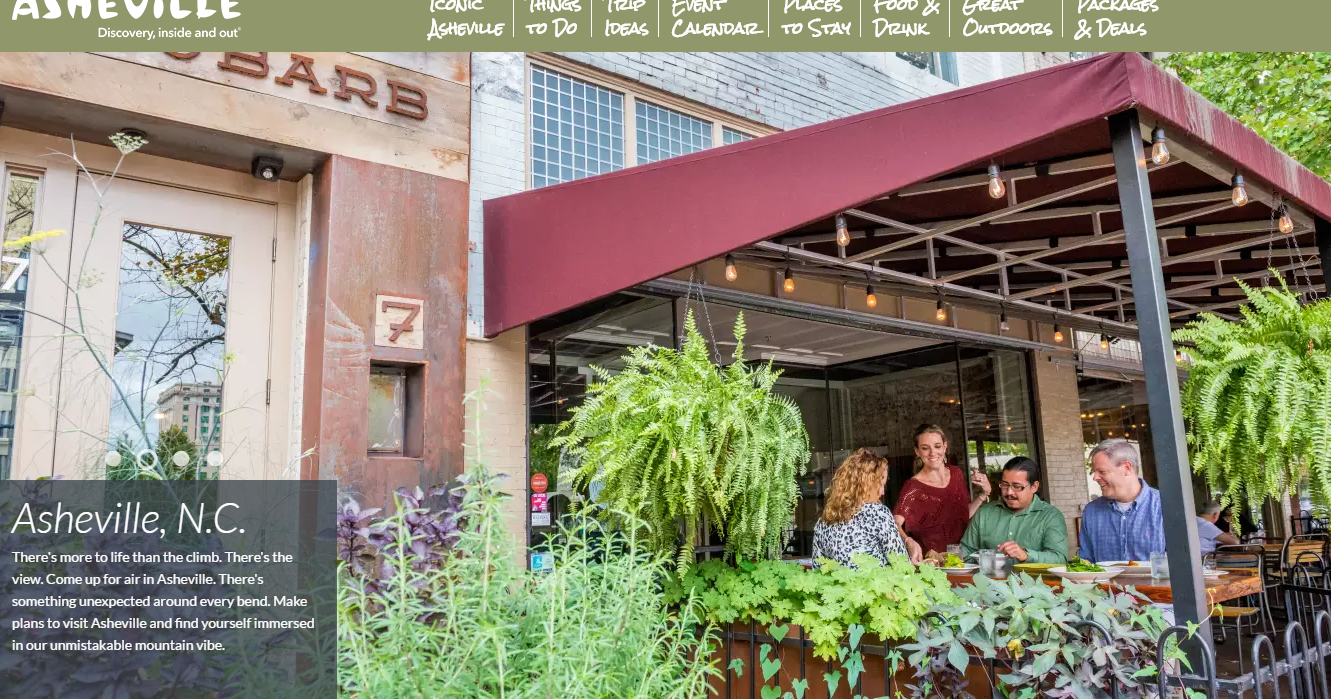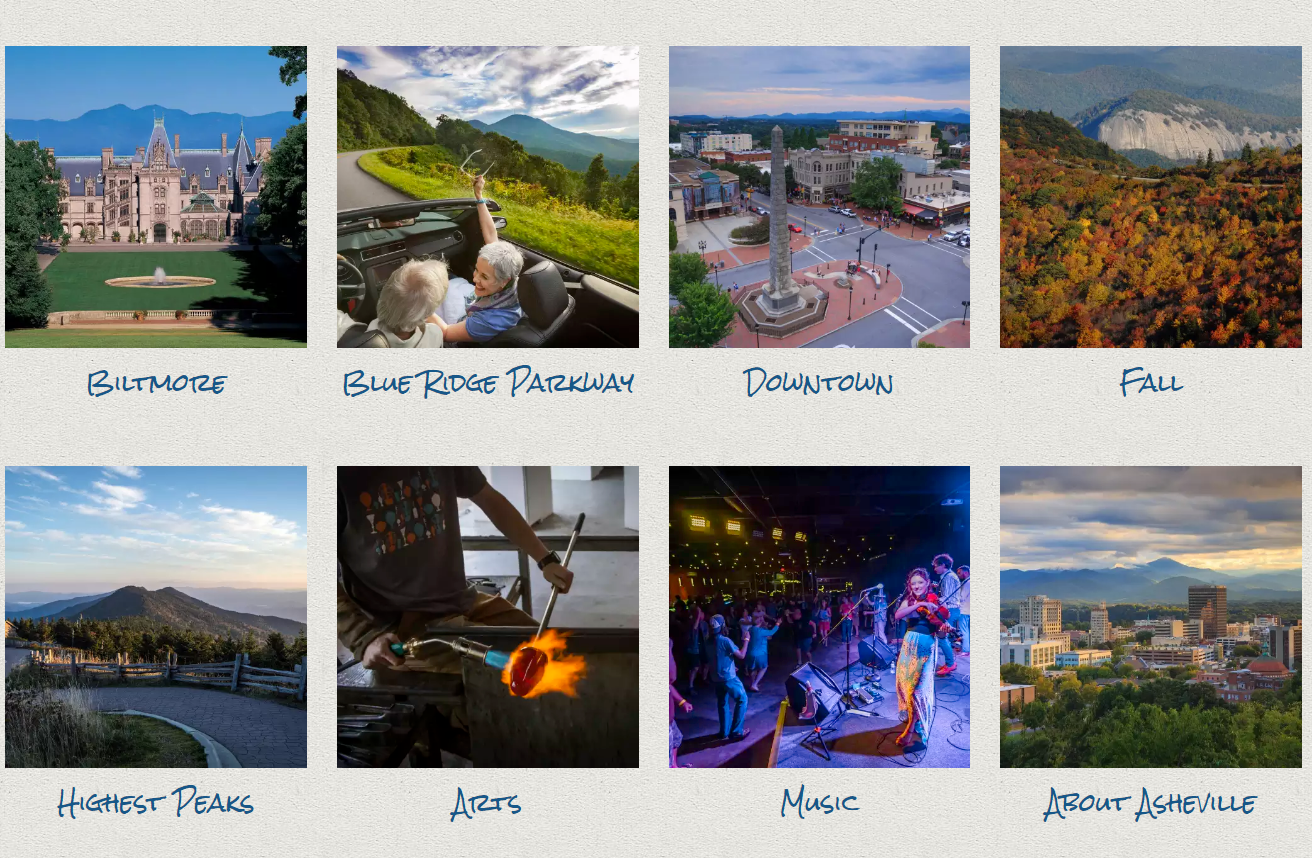The town highlighted the mountains and the mountain traditions, elevating the idea of traditional music, turning old-way artists into artisans and highlighting hiking their particular section of the Appalachian Trail as a not-to-be-missed experience. The message and the marketing highlight what is unique and iconic about the town.
Asheville sticks with what it has, and applies the idea of Asheville to everything, indiscriminately. This brand integration allows it a wide latitude for application as Asheville keeps the conversation about its personality. Leaving the elements of activities and the place itself as window dressing, the message that We Are Interesting comes through loud and clear. With this focus on its character, Asheville is able to nimbly incorporate elements as they come and go, from music festivals to craft breweries. This is a message that is elastic enough to incorporate trends without breaking its mold. When I look at the way in which Asheville invites others to come experience the town as opposed to merely visit, I see a marked difference between this narrative and much of what seems a mad grab for additional hodgepodge entertainment elements, such as Las Vegas adding an NFL team to the list of things you can do in Vegas (and then never speak of again -- let me tell you, I’m already seeing the “What happens in Vegas stays in Vegas” football weekends and sportscaster references, each more groan-inducing than the last).
Asheville’s regeneration narrative redefined more than its town; the branding initiative undertaken by Asheville really grabbed and redefined mountain culture. Before Asheville, our national understanding of the Appalachian Mountains was unfavorable in the extreme, the butt of horribly insensitive and off-color jokes, most of which involved incest. While West Virginia is still seen in this way, Asheville has highlighted itself as so traditional as to be hip and worth the trip
Asheville’s marketing and brand is distinctly unapologetic. It’s a town that really likes itself, and it’s okay if you don’t agree. This stance might be the biggest tether back to its roots, a foil against the critics that say that, much like Monterey, California, it is in love with itself enough that no one else needs to be, and that it has lost touch with its authenticity over years of telling us how real it is here. When I think of Asheville’s acceptance of its warts, I am reminded of the I (heart) NY ad campaign. The ultimate effort in branding a city into an icon, this campaign never said “I’m sorry” for what didn’t work about NY, and there was plenty that didn’t back then (and still doesn’t work today). Both marketing campaigns focus on the tangible good elements and shrug off the bad ones with an acceptance that almost makes us more comfortable, as though by accepting the lack of perfection in the town, we can at long last have permission to accept the lack of perfection in ourselves.
Through it all, Asheville clearly tells us that everyone here is free, white and 21. There isn’t much for the less-abled or disenfranchised, and there certainly aren’t any representations of them in the abundant marketing and tourist literature. The white creative class is more the focus for the Asheville web site than ever before. Never forget that Asheville went out of its way to add a craft brewery, decades after it had us all convinced that it had everything it needed. 
In fact, there’s a bit of desperation lurking in the wings of the stagecraft. Nonetheless, even though it might have to reboot its regeneration and update its sense of where it ranks in the New Mountain Towns index, Asheville’s branding did a lot of things well, in my opinion, whether we are selling ice cream or insurance.